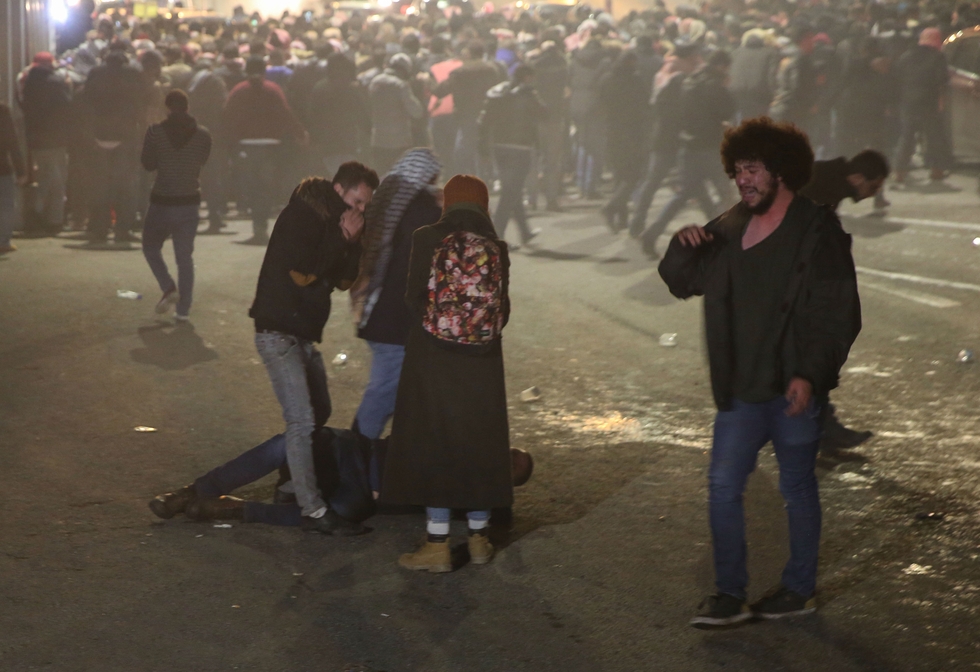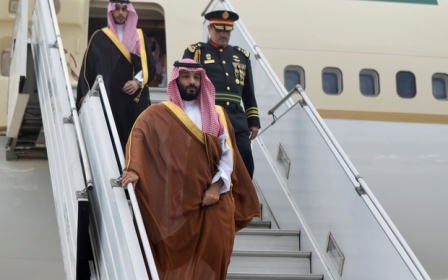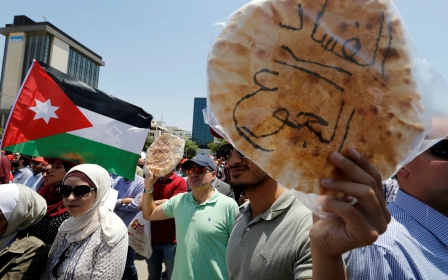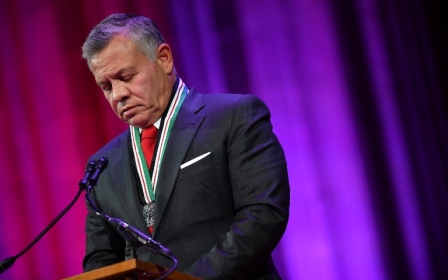Police fire tear gas at Jordanians protesting against tough austerity measures

Police have used tear gas against demonstrators as at least 1,000 Jordanians took to the streets of Amman to protest against an income tax law adopted in November under an IMF-inspired austerity programme aimed at reducing public debt.
Authorities deployed hundreds of riot police in the capital as protesters gathered on Thursday near Prime Minister Omar Razzaz's office, which was cordoned off by security forces.
"Down with the tax law," read one sign, held aloft by demonstrators calling for "reforms and change".
"We want a government of patriots, not a gang of thieves," they said.
Jordanian politicians on 18 November approved an IMF-backed income tax bill after making amendments to a controversial draft law that sparked a week of angry protests in June which nearly toppled the government.
The original bill, which the government approved in June, raised taxes for employees by at least five percent, and on companies by between 20 and 40 percent.
These measures were left unchanged in the amended version.
Smaller demonstrations have taken place over the past two weeks, with local media reporting the detention of 24 activists in connection with the protests.
The demonstrators on Thursday chanted for their release, the AFP news agency reported.
The revised bill raises the threshold for households to pay income tax to 20,000 Jordanian dinars ($28,000) from a previous ceiling of 18,000 for 2019.
The amended legislation also introduced exemptions of up to 2,000 dinars per family for basic expenses such as education and health, and 1,000 dinars per single person, if receipts are provided.
Democratic reforms
The protests against the tax bill last June led King Abdullah to appoint Razzaz as prime minister.
Protesters have demanded his resignation. They say he has not delivered on his promises, after the Jordanian parliament last month approved the tax bill, with few changes. The bill will hit Jordan's middle and working classes.
Demonstrators say Razzaz has sought public support for tough economic measures while failing to curb lavish public expenditure and improve public services.
They also called on the monarch to embark on democratic reforms.
With a lack of natural resources to boost state coffers, Jordan relies heavily on foreign aid and faces a public debt of approximately $40bn and an unemployment rate of 18.5 percent.
Stability in Jordan is seen as fundamental to the region and in the wake of protests Amman was offered a $2.5bn aid package from three Gulf backers.
New MEE newsletter: Jerusalem Dispatch
Sign up to get the latest insights and analysis on Israel-Palestine, alongside Turkey Unpacked and other MEE newsletters
Middle East Eye delivers independent and unrivalled coverage and analysis of the Middle East, North Africa and beyond. To learn more about republishing this content and the associated fees, please fill out this form. More about MEE can be found here.




